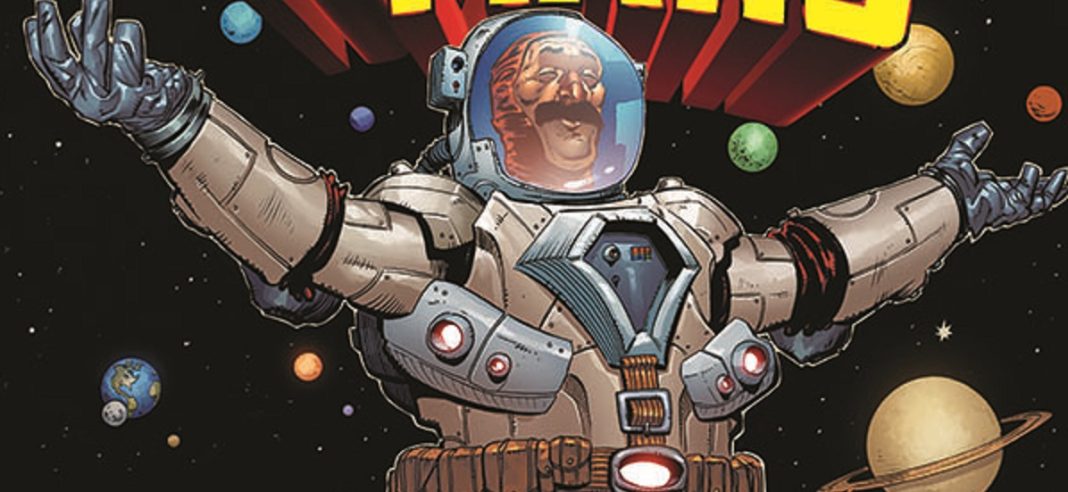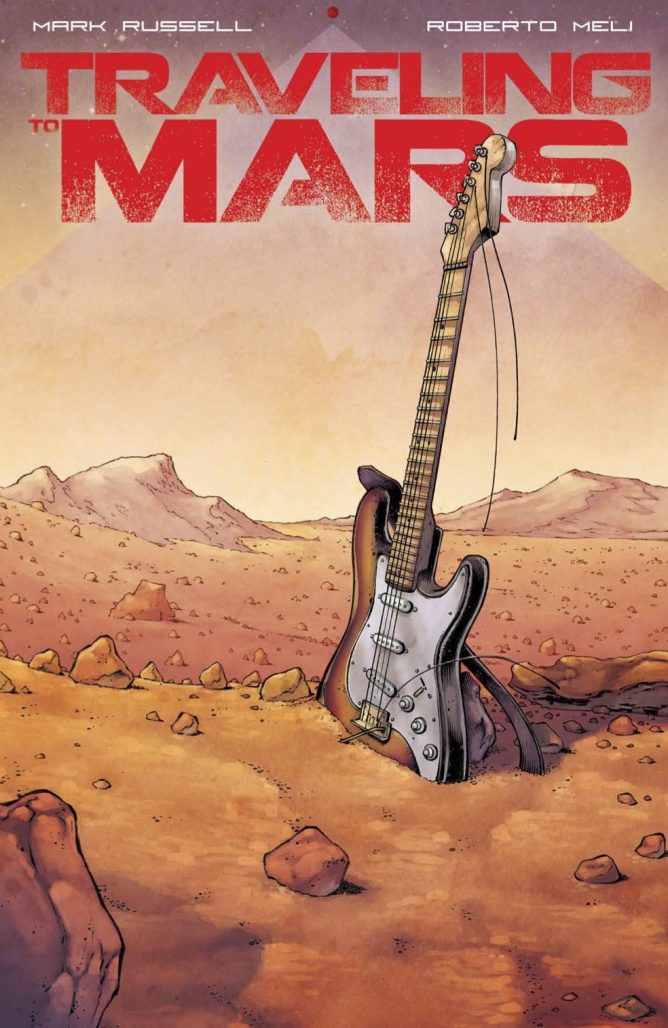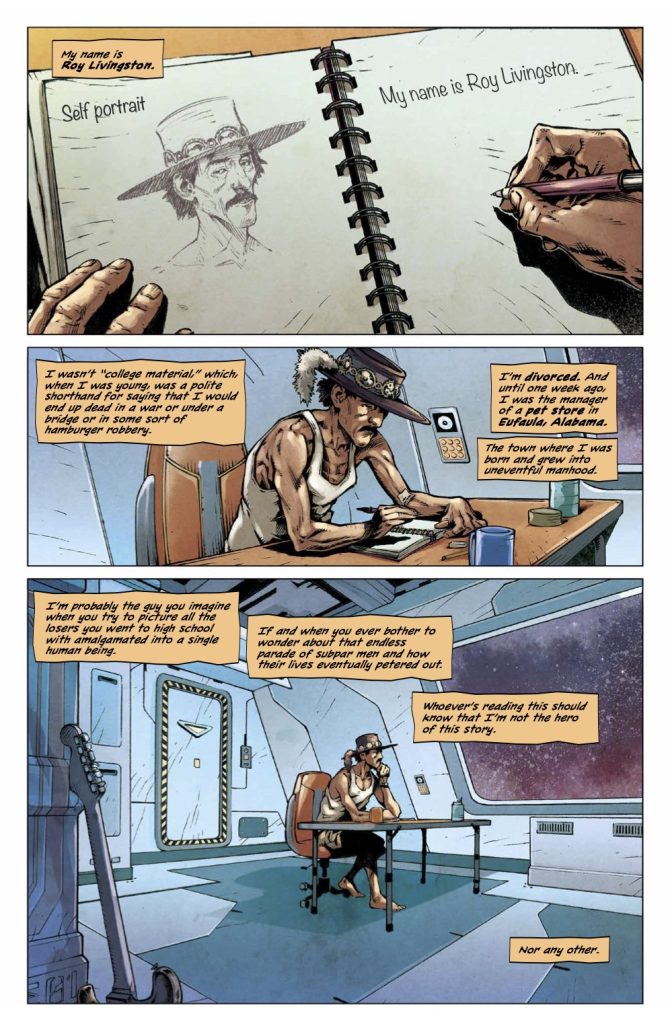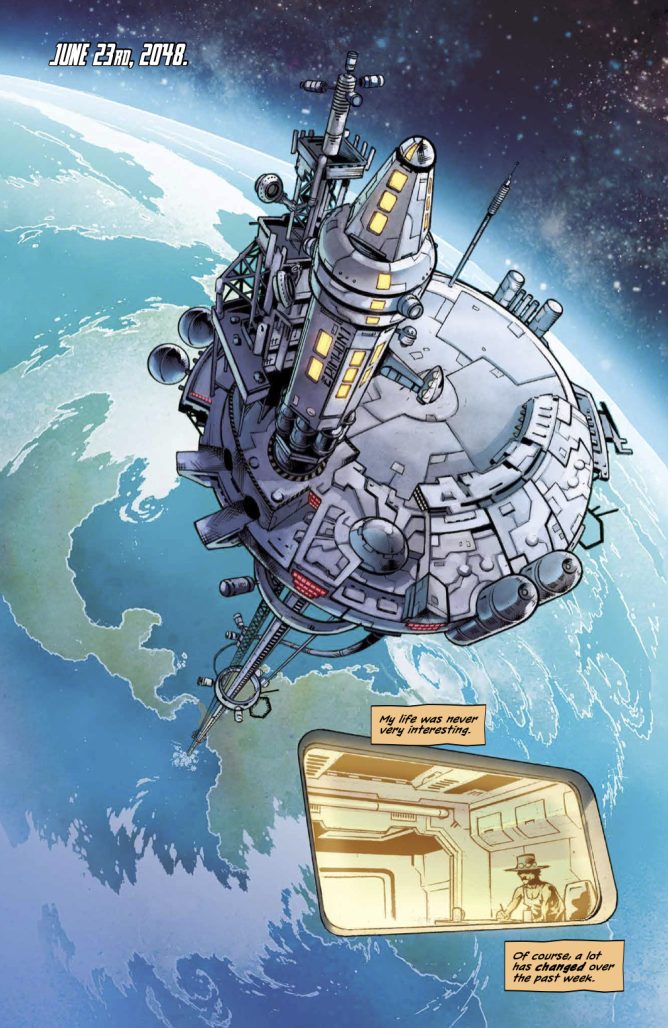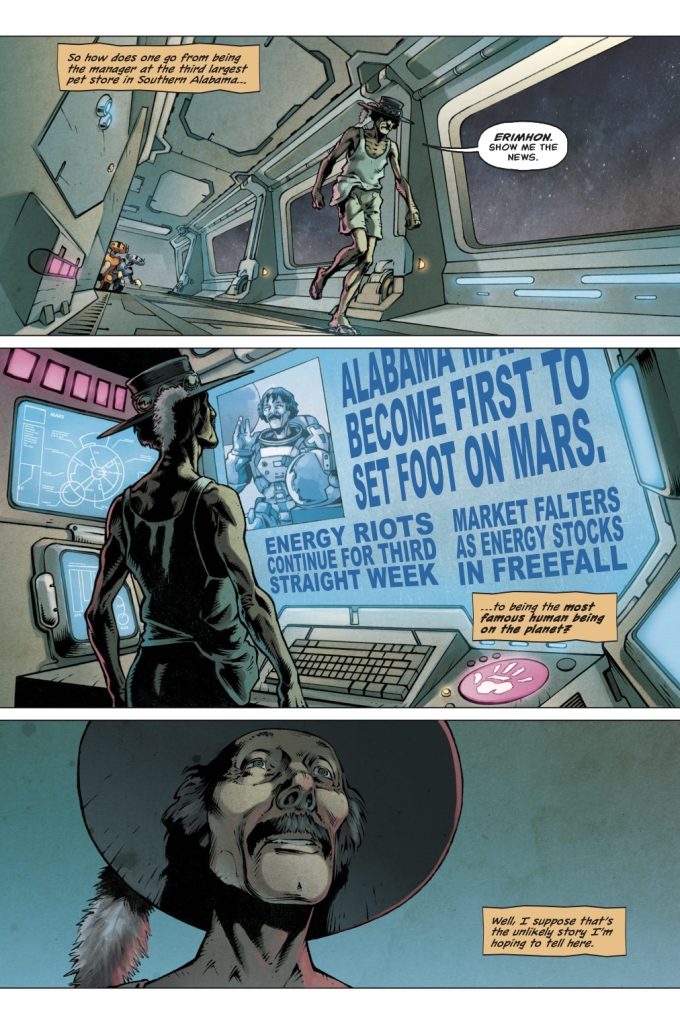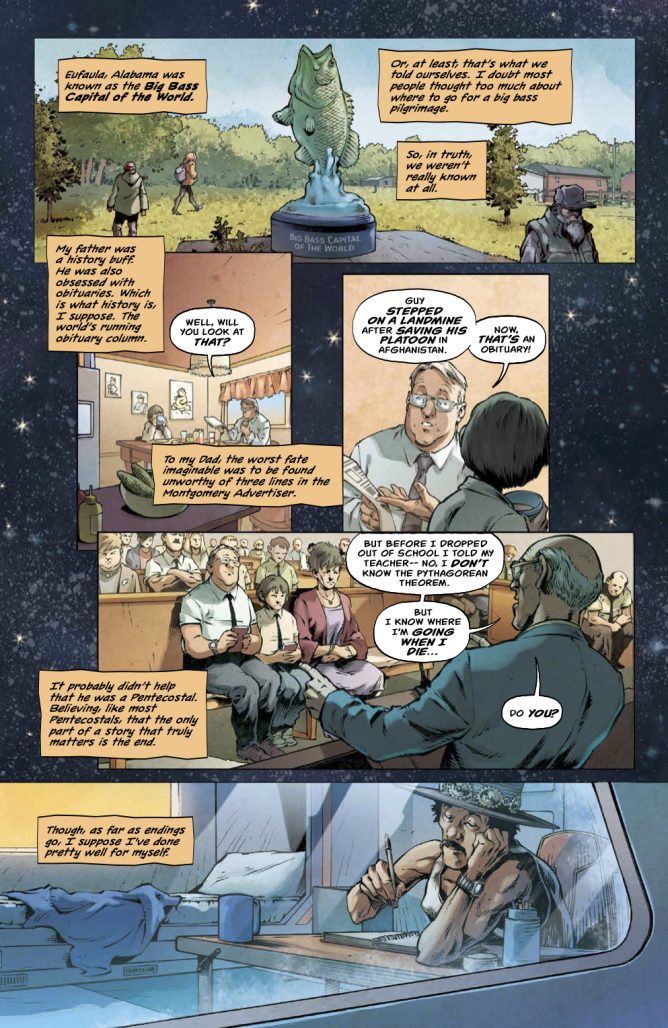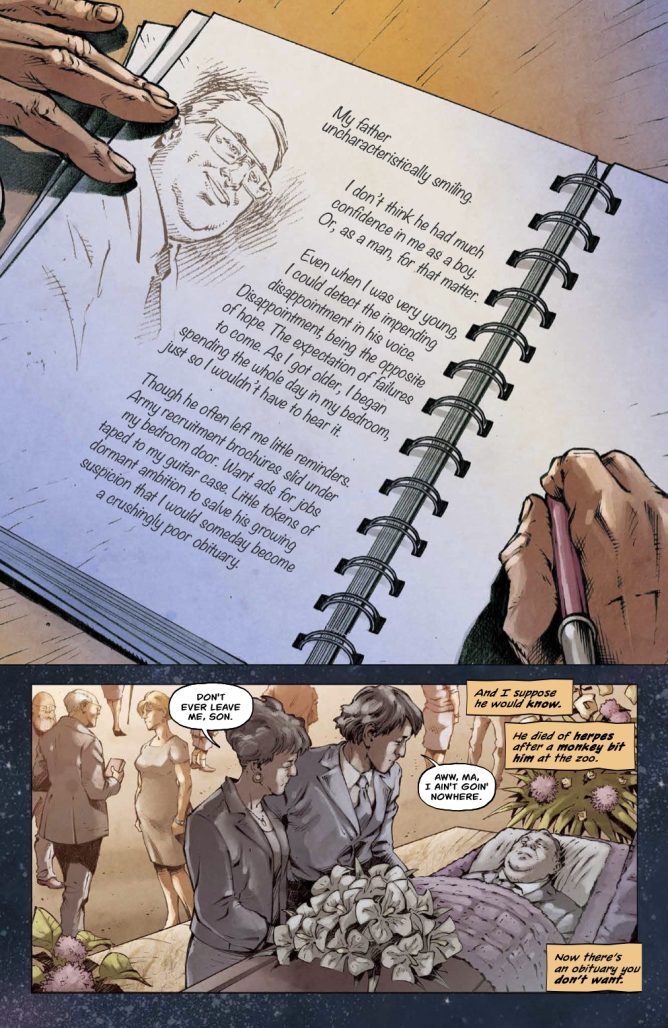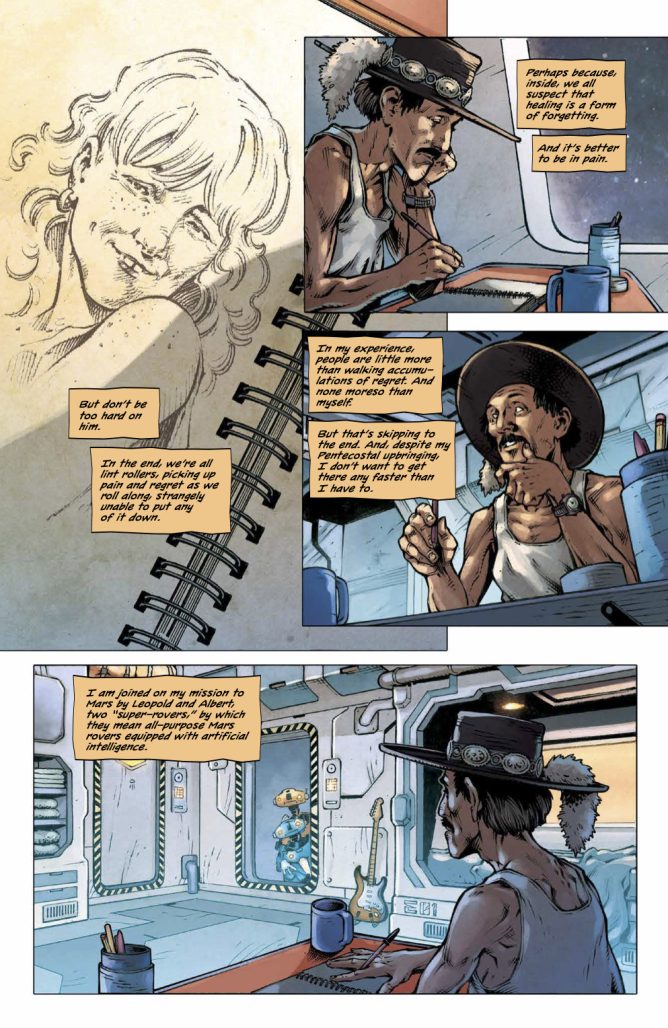Traveling to Mars #1 is out this week, and before the launch of the new title, The Beat had a chance to sit down with writer Mark Russell.
As Russell details in our conversation below, this book shares some thematic commonalities with the work he is perhaps best-known for in comics, from The Flintstones to Billionaire Island. A key difference here, however, is that Russell and his collaborators are telling this story from a more personal lens, one that he wrote as if it were he himself taking the journey we see the main character going through.
It’s a great conversation (about a great comic), and you can find it in full below. Traveling to Mars #1 drops Nov. 9, and it is published by Ablaze, from the team of Russell, artist Roberto Meli, colorist Chiara Di Francia, and letterer Mattia Gentili.
Check out the interview after the first issue cover below…enjoy!
Interview: Mark Russel Talks TRAVELING TO MARS
ZACK QUAINTANCE: Traveling to Mars struck me as maybe a bit more personal than some of your other work. How personal is this comic?
MARK RUSSELL: Very personal. I think what attracted me most to this project was the chance to just tell a story without having to worry about how well it fit within the conventions of genre, without worrying if it was exciting or if enough people got punched. It tells the story of a dying man locked on board a spacecraft on a one-way mission to Mars. It’s all about his regrets and ruminations on how he might have done things differently. How we all might have done things differently. So, in writing it, I tried to write it as if it were me on that journey. So it’s deeply personal.
ZACK: At the same time, this book has some of the funniest out-of-context lines — ‘Oh, that’s right, I was explaining how the assistant manager of the third largest pet store in Alabama was about to become the first human being to ever set foot on Mars…’ — what was your writing process like on this one? Did character and voice come before plot, or was it all sort of one riff?
MARK: I had a general idea for the plot. I knew how it would begin and end. But almost everything in between is about character. About letting my mind (and therefore Roy’s) wander toward what it means to be alive. To be standing at the edge of the abyss.
ZACK: How much scientific research did you have to do for this script? Things like the Armstrong Limit, the low-torque location of the space elevator, etc., gave it a really layered and interesting feel.
MARK: I think I can safely say I’ve done more science-based research for this project than anything else I’ve ever written. Mostly about the logistics of traveling to Mars, the effects that life on Mars would have, not only for the human body, but for machines. And, also, what it would take to make Mars habitable by humans as opposed to the much easier (though weirdly, much harder to get a consensus on) task of making the Earth more habitable for humans.
ZACK: What’s the relationship between this book and some of your other work? Is there a line between Flintstones, Billionaire Island, and now Traveling to Mars, for example?
MARK: Well, the through line is probably that they’re all grand critiques on civilization. Though critiques from markedly different vantage points. The Flintstones being from the birth of civilization, Billionaire Island being from the moment of its collapse, and Traveling to Mars being from the vantage point of a dying man wondering what’s going on from millions of miles away.
ZACK: There are so many good character details in this one, but I am for some reason compelled to ask about one specifically — is there any reason in particular that our main character here manages a pet store?
MARK: I wanted him to have a job that personally requires him to be nurturing and taking care of vulnerable lives, but in the predatory context of an industry trying to cash in on it. It just seemed like a good metaphor for the mission he’s being sent on. He’s agreed to go to Mars because he believes it will be good for the people he cares about and, generally, for the people of Earth. But it’s really just a company sending him to Mars so they can claim its natural resources and he was chosen simply because he’s terminally ill so they don’t have to worry about bringing him back.
ZACK: Finally, how might the world avoid a situation in which an imitation meat company is leading the space race to find more fuel? Is this future inevitable?
MARK: No, in fact, it is easily avoidable. We simply have to find the will to ween ourselves off finite fossil fuels and find the same sort of enthusiasm for terraforming Earth that sending people to Mars generates.
Traveling to Mars #1 is out Nov. 9.


